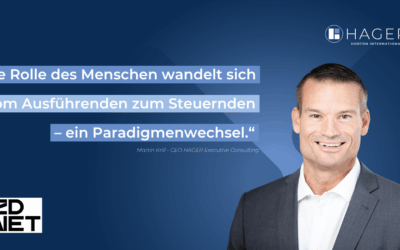
‘If I stand still, I fall behind.’ The old running slogan of industry sounds very different today: ‘If you don’t go two steps ahead, you fall three steps behind’. The digital revolution, and with it the comprehensive change in all areas of life and work, is similar to the triumph of the steam engine in the 19th century – nothing stays the same; knowledge and inventions pick up speed.
The digital transformation has permanently changed the way we understand and deal with illness. Bringing ever more sophisticated digital applications and technologies to market maturity has become the driving force behind R&D departments in medical technology.
AI offers advantages that go far beyond traditional diagnostic and clinical techniques. The alliance between man and machine, localised in the ‘Internet of Medical Things’ (IoMT), is progressing rapidly. Thanks to a medical technology sector that sets standards worldwide and is one of the leaders in global trade, Germany is at the centre of this dynamic change. It is also proving to be a good location for establishing high-quality, innovative applications in the healthcare sector.
On the transformation journey
Products and productions equipped with IT. Horizontal and vertical networking across company boundaries. Visionary medical goals. Ideally, in today’s medtech cyber world, CIOs (all genders) are at the helm who are fully involved in the transformation journey and therefore know where the company is at the moment, including in terms of efficiency, productivity and growth. They understand the automation that is controlled by digital systems and are close to production or the management of production.
Increasingly, it is engineers from the mechanical engineering sector who can score points here with their experience and a range of innovative technology concepts. What these CIOs 4.0 have in common psychologically is the power of persuasion and the charisma to accompany the entire workforce on this not always easy journey. If jobs are cut due to robotics, the CIO 4.0 will look at where these valuable specialists can be deployed elsewhere in the company so that they are not lost. This is transformation in action.
New generation of skills
The biggest challenge, however, is the pace at which everyone has to keep up. Always being at least two steps ahead. If a company does not manage this innovation-hungry pace, it will inevitably lose out in global competition. This means leading the way and not following others. Germany’s medtech giants have solidified this maxim and are on the lookout for protagonists who understand how to implement the new 4.0 paradigm. Small and medium-sized companies should be advised to do the same.
HAGER knows the fast pace of digital transformation. And HAGER knows the personalities who bring a willingness to change and quick thinking. This is not just empty phrases, but HAGER’s long experience: change starts with people. And for the present and future, we need leaders who can guide us through change in tense times. They are communicators, networking masters, human deep learners and visionaries. Without them, the representatives of the new CIO 4.0 generation, the pressure of digitalisation to which medical technology is exposed will come to nothing. With fatal consequences.
‘Transformation requires a willingness to change. Opening up to the new and shaping it remains the only chance to help set the agenda in global competition.’
Dr. Markus Neumann, Business Unit Manager Lifesciences & Healthcare
Do you need help recruiting CIO and IT experts for the Transformation 4.0 and Internet of Medical Things? Then contact the authors of the article Dr med. Markus Neumann, Head of Business Unit Life Sciences & Healthcare and Michaela Bender, Manager Healthcare.


